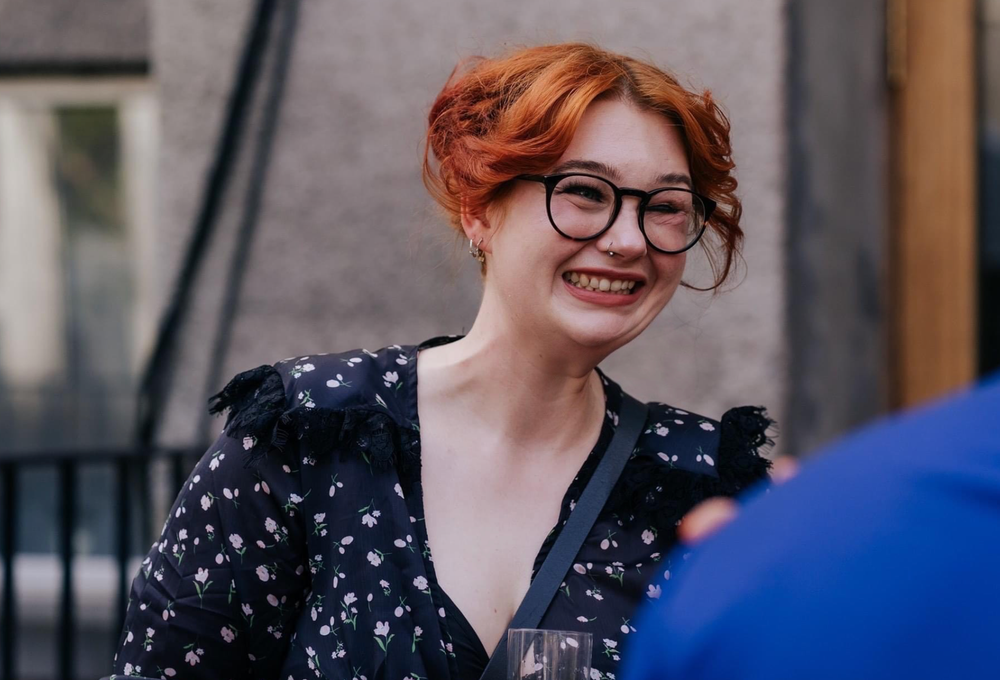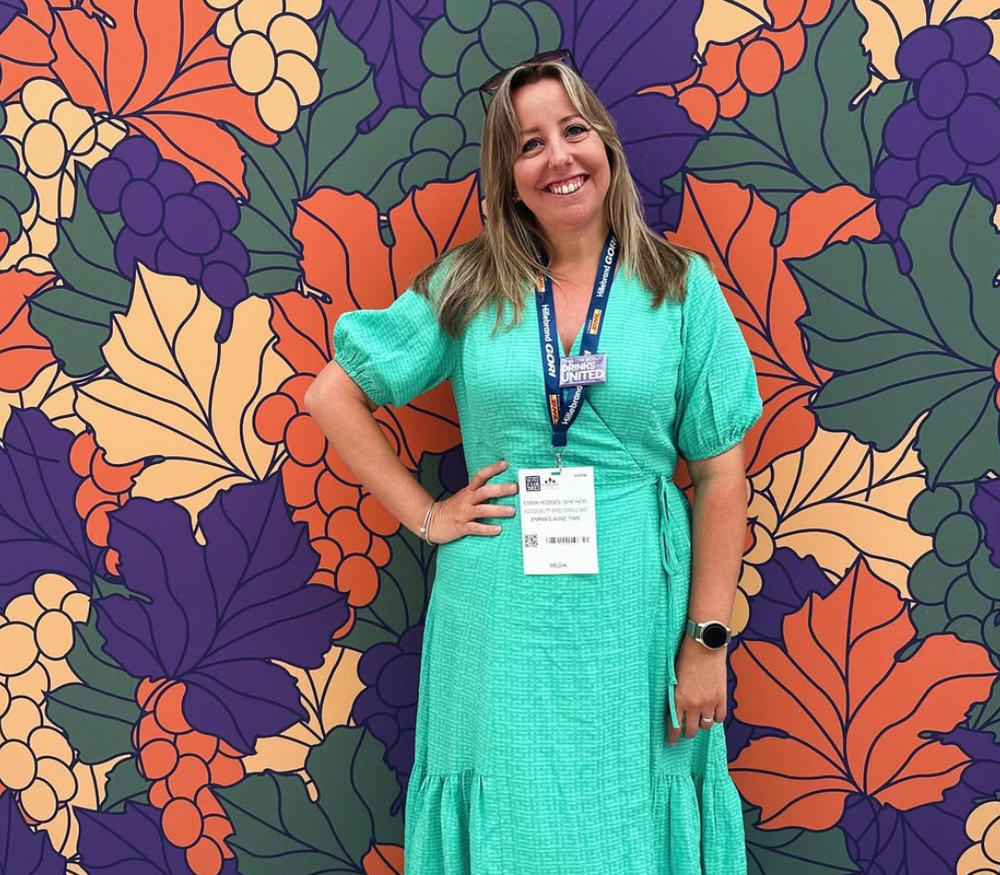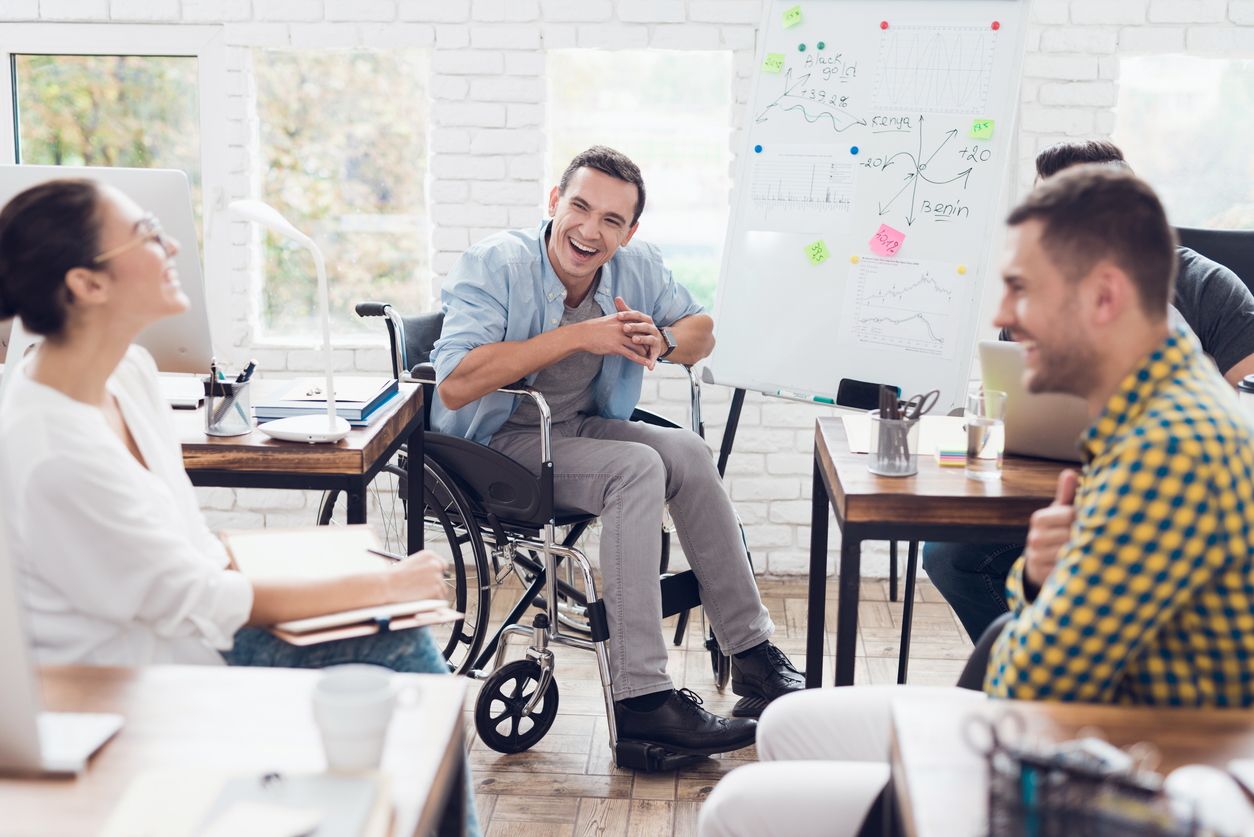“I Just Need to Be Asked”
As someone working within the wine industry to champion accessibility and inclusion through training, advisory work, and inclusive communications, I often meet individuals whose lived experiences highlight both the progress we have made and the work still to do.
During a recent training session, I had the pleasure of meeting a brilliant woman working in the wine industry while navigating additional needs. Her story is one of resilience, honesty, and insight and I’m grateful she was willing to share it with me.
Inclusion doesn’t start with sweeping gestures, it starts with one simple question: “What support do you need to thrive?”

Tanita Gibbs shares her experiences as partially sighted, neurodiverse professional in the industry and what an enormous support North South Wines have been in her career
I asked Tanita Gibbs, a team member at North South Wines about her journey through the drinks industry as a partially sighted, neurodiverse professional and the moments that challenged, empowered, and shaped her experience.
From pubs to palates
Starting out in hospitality and running pubs, Tanita worked her way into wine retail before landing in her current role in customer service at North South Wines in 2024.
“It felt like a natural progression in the drinks trade. Wine is such a rich and expressive world and as someone who studied theatre and storytelling, I found myself drawn to it.”
Her day-to-day involves everything from processing orders to resolving delivery issues and supporting the marketing team, including contributing to Equity, Diversity & Inclusion training initiatives.
When the support isn’t there
Despite Tanita's love of the industry, her path hasn’t been without barriers.
“I tried to complete my WSET Level 3 but found it impossible without structured support. The content is complex, and I struggled. I have learning difficulties and a below-average working memory. I was constantly second-guessing myself. The support simply wasn’t there.”
Inaccessible self-directed study formats, limited accommodations, and assumptions about ability made learning feel isolating, even discouraging. Wine education needs to be looked at how we can support those with access needs, put in scaffolding and different variations of the qualifications.
Navigating the physical space
The challenges have not been only cognitive. After losing sight in her left eye in a car accident in 2014, crowded trade tastings became a source of anxiety.
“Dodging full glasses and spittoons in tight spaces with limited vision was overwhelming. I worried I would bump into someone or knock something over. I left early, it just wasn’t safe or welcoming,” she says.
Trade and consumer tastings are often loud, busy and full of fragile objects, asking consumers if they have an access needs before they arrive can help a person feel included. Offering support round a tasting, a quiet hour option or asking the consumer how they can be supported.
Disclosure, confidence and allyship
She’s found confidence over time in being open about her access needs, though it hasn’t always been easy.
“Because I have a visible difference, I don’t always get the choice not to disclose. I explain that if you’re standing to my left, I can’t see you. Neurodivergence is trickier to explain. But once I do, most people really try to help,” she adds.
What’s made the difference? A workplace that listens.
“At North South Wines, I ask loads of questions and I’m supported for it. I have tools on my computer that help me read and write more easily. If I needed more, I know it would be explored without hesitation,” she explains.
Tanita’s biggest frustration? Language.
“Wine is so expressive, yet training and tastings are often full of inaccessible, overly complex terms with no visuals. We all need more explanation, more clarity. Everyone would benefit - not just those with additional needs.”
Using visuals and images can be more accessible not only for those with additional needs, but all for those with different first languages.
She also highlights hiring practices like aptitude tests that disproportionately disadvantage neurodiverse candidates - and don’t reflect the actual job.
“They’re often similar to assessments for learning difficulties. Doing them on a phone, without context, is unfair and exclusionary,” she stresses.
What needs to change?

As a specialist accessibility and inclusion consultant Emma Hodges works with a number of wine and drinks companies to look at what changes they can make in their businesses to be more welcoming and inclusive
The answer, she says, isn’t complicated, it’s human. We need to be proactive, not reactive. Ask the questions to support, don’t wait to be told what they may need.
As she says: “Ask the question: Do you need additional support? Or Is there a particular way you work best? It would help everyone, not just those with visible or declared disabilities.”
Tanita would love to see more open conversations between employers and employees, with space for honesty and adaptation. She also stresses the importance of learning different ways of working and keeping assumptions in check. The importance of feeling safe needs to come from within a company.
“I may come across as confident, but I still need adjustments to succeed,” she adds.
Message to the industry
What advice would you give to those with similar needs entering the industry?
“Ask for support. We know what we need to thrive. It won’t be perfect straight away, but the conversation has to start somewhere.”
She adds: “Look around. How diverse is your room? And if it’s not, ask yourself: why? What could you be doing better? Then go and do it.”
Allyship in action
“Do the research. There are so many resources out there. And let people see that you’re doing the work — it builds trust. I wanted to work for North South Wines because it’s a B Corp. That matters,” says Tanita.
She is, for example, taking action with the marketing team at North South Wines to make its portfolio tasting this year as inclusive as possible.
Inclusion isn’t a one-size-fits-all fix. But it starts with awareness, conversation and the willingness to ask,”What do you need to succeed?” Show people what you are doing, it makes people with access needs want to work for you.
- If you would like training or advice on how to introduce better accessibility and inclusion in your business then contact Emma Hodges at emmawinetime@gmail.com.
- Emma Hodges sits on the advisory boards for Wine GB and Drinks United.






























